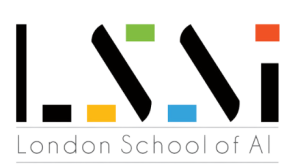Data Analyst
Career Path program

New Session Starting:
1st of Dec 2023.
Program Duration:
6 months. 4-8 hrs/week.
Learning Format:
On-site Classes.
Course Overview
Key Elements:
- In-depth coverage of Data Analysis: Concepts and Principles.
- Practical exercises and real-world examples.
- Comprehensive learning resources, including tutorials, case studies, and reference materials.
- Hands-on experience with the latest technologies.
- Guidance from experienced instructors and industry experts.
- Interactive discussions and peer collaboration.
- 6 modules and 1 final project.
Relevant Courses
Learning Path
Business Analytics using Excel
Handling data with SQL
Basics of Programming and Data Analytics using Python
Data Science using R programming
Data Analytics using R programming
R is the most desired open-source technology, therefore learning it is the next step to becoming a data analyst. The strong analytics and data science language R has a high learning curve and a thriving community. Because of this, it is fast replacing other technologies as the preferred option for businesses utilising analytics to gain a competitive edge.
Tableau Training
Learning Path
Introduction to Full-Stack Development - MERN Stack
Getting started with full-stack development with the introduction of the course, and exploring course modules in detail.
Develop interactive Front-End with React
Learn all the basic and advanced concepts of front-end development including the major front-end development platforms like HTML, CSS, Javascript, and React.js Frameworks.
Fully functional Back-End with RESTFul and MongoDB
Learn all the basic and advanced concepts of back-end development including the major back-end development platforms like Node.js, Databases, RESTFul API and MongoDB.
Full-Stack Development - Merging Front-End and Back-End
Now, you will move towards the integration of the front-end and back-end and scaling them to make your website interactive and user-friendly.
Final Project - Analysis of Customer Behavior in E-commerce Using Python and Tableau
Data Analyst Certification Advantages
With this programme, you will:
- Learn fundamental concepts of data and business analytics from recognised experts in the field, with information relevant to the industry.
- Implement the concepts of data analysis in an e-commerce application using Python and Tableau.
- Earn a course completion diploma that is recognised by the industry.

Skills Covered
-
Data analysis
techniques.
-
Proficiency
in Excel.
- SQL database management.
- Programming fundamentals.
-
Data
visualisation.
-
Machine learning
basics.
-
Data
wrangling.
-
Statistical
analysis.
-
Data
storytelling.
-
Project
management.
-
Data ethics and
privacy.
- Critical thinking and problem-solving.
Tools Covered





Industry Trends
Data analyst
Industry Growth
25% Annual Growth
For Data Analyst Jobs from 2020 to 2030
0.6 Million New Jobs
For the field of Data analyst jobs, there is a promising outlook from 2020 to 2030
Data analyst
Annual Salary
Our Requirements
- Proficiency in Microsoft Excel.
- Mathematics and statistics foundation.
- Familiarity with databases.
- Analytical thinking skills.
- Programming basics.
Suitable Candidates
The Data Analyst course is suitable for candidates who possess a strong analytical mindset, including graduates, professionals with a curiosity for data analysis, business professionals seeking data skills, IT professionals transitioning into data analysis, and career switchers looking to leverage their transferable skills in the data-driven job market.
Pre-requisites
1) Proficiency in Microsoft Excel.
2) Mathematics and statistics foundation.
3) Familiarity with databases.
4) Analytical thinking skills.
5) Programming basics.



